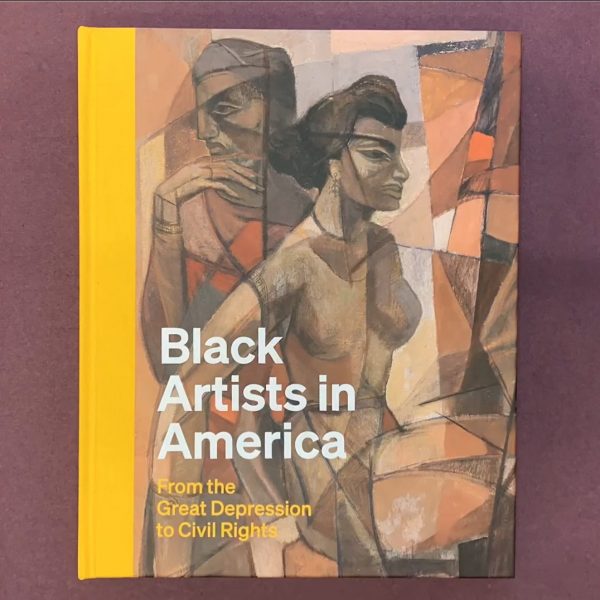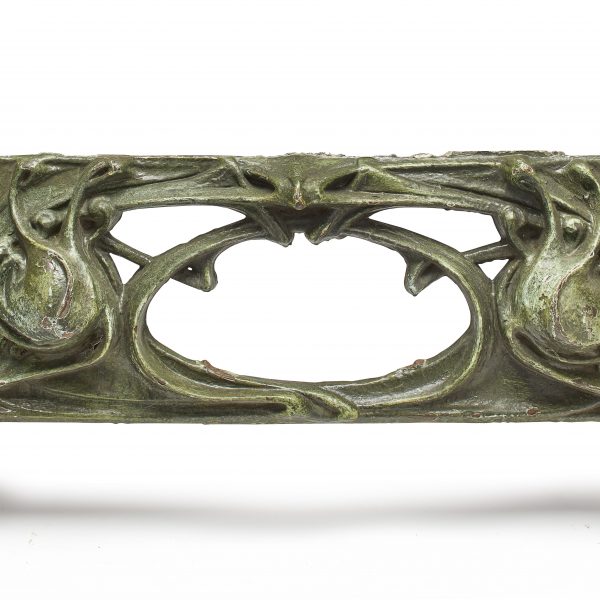February is…
National African American History Month! Yale Press has a wide range of books covering this topic for you to check out. Here’s just a sample:
Aaron Douglas: African American Modernist, edited by Susan Earle
 In paintings, murals, and book illustrations, Aaron Douglas (1899–1979) produced the most powerful visual legacy of the Harlem Renaissance, prompting the philosopher and writer Alain Locke to dub him the “father of Black American art.” Working from a politicized concept of personal identity and a utopian vision of the future, the artist made a lasting impact on American art history and on the nation’s cultural heritage. Douglas’s role, as well as that of the Harlem Renaissance in general, in the evolution of American modernism deserves close scholarly attention, which it finally receives in this beautifully illustrated book.
In paintings, murals, and book illustrations, Aaron Douglas (1899–1979) produced the most powerful visual legacy of the Harlem Renaissance, prompting the philosopher and writer Alain Locke to dub him the “father of Black American art.” Working from a politicized concept of personal identity and a utopian vision of the future, the artist made a lasting impact on American art history and on the nation’s cultural heritage. Douglas’s role, as well as that of the Harlem Renaissance in general, in the evolution of American modernism deserves close scholarly attention, which it finally receives in this beautifully illustrated book.
Women’s Rights and Transatlantic Antislavery in the Era of Emancipation, edited by Kathryn Kish Sklar and James Brewer Stewart
 Approaching a wide range of transnational topics, the authors ask how conceptions of slavery and gendered society differed in the United States, France, Germany, and Britain; how women’s activism reached across national boundaries; how racial identities affected the boundaries of women’s activism; and what was distinctive about African-American women’s participation as activists. Their thought-provoking answers provide rich insights into the history of struggles for social justice across the Atlantic world.
Approaching a wide range of transnational topics, the authors ask how conceptions of slavery and gendered society differed in the United States, France, Germany, and Britain; how women’s activism reached across national boundaries; how racial identities affected the boundaries of women’s activism; and what was distinctive about African-American women’s participation as activists. Their thought-provoking answers provide rich insights into the history of struggles for social justice across the Atlantic world.
Slavery and the Commerce Power: How the Struggle Against the Interstate Slave Trade Led to the Civil War, by David L. Lightner
 Despite the United States’ ban on slave importation in 1808, profitable interstate slave trading continued. The nineteenth century’s great cotton boom required vast human labor to bring new lands under cultivation, and many thousands of slaves were torn from their families and sold across state lines in distant markets. Shocked by the cruelty and extent of this practice, abolitionists called upon the federal government to exercise its constitutional authority over interstate commerce and outlaw the interstate selling of slaves. This groundbreaking book is the first to tell the complex story of the decades-long debate and legal battle over federal regulation of the slave trade.
Despite the United States’ ban on slave importation in 1808, profitable interstate slave trading continued. The nineteenth century’s great cotton boom required vast human labor to bring new lands under cultivation, and many thousands of slaves were torn from their families and sold across state lines in distant markets. Shocked by the cruelty and extent of this practice, abolitionists called upon the federal government to exercise its constitutional authority over interstate commerce and outlaw the interstate selling of slaves. This groundbreaking book is the first to tell the complex story of the decades-long debate and legal battle over federal regulation of the slave trade.
Coming soon in paperback:
The Talking Book: African Americans and the Bible, by Allen Dwight Callahan
 The Bible has profoundly influenced African Americans throughout history. From a variety of perspectives this wide-ranging book is the first to explore the Bible’s role in the triumph of the black experience. Using the Bible as a foundation, African Americans shared religious beliefs, created their own music, and shaped the ultimate key to their freedom—literacy. Allen Callahan highlights the intersection of biblical images with African-American music, politics, religion, art, and literature.
The Bible has profoundly influenced African Americans throughout history. From a variety of perspectives this wide-ranging book is the first to explore the Bible’s role in the triumph of the black experience. Using the Bible as a foundation, African Americans shared religious beliefs, created their own music, and shaped the ultimate key to their freedom—literacy. Allen Callahan highlights the intersection of biblical images with African-American music, politics, religion, art, and literature.
Coming soon:
A Fragile Freedom: African American Women and Emancipation in the Antebellum City, by Erica Armstrong Dunbar
This book is the first to chronicle the lives of African American women in the urban north during the early years of the republic. A Fragile Freedom investigates how African American women in Philadelphia journeyed from enslavement to the precarious status of “free persons” in the decades leading up to the Civil War and examines comparable developments in the cities of New York and Boston.
And for more Yale Press books on African American history, click here.



